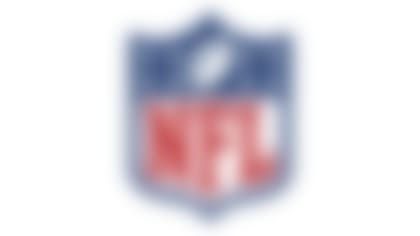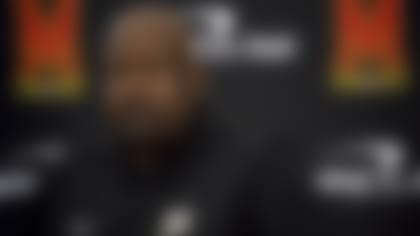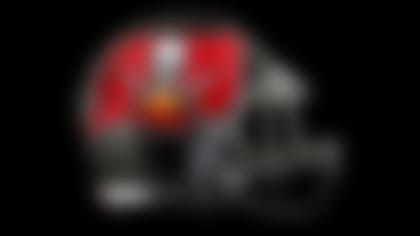On the bus ride to Super Bowl VII, Don Shula was deep in thought.
His teams had already lost the first two Super Bowls he had coached in -- including, most memorably, when his Baltimore Colts were on the losing end of one of the biggest upsets in the game's history, falling to the New York Jets in Super Bowl III after Joe Namath famously guaranteed a victory for the heavy underdogs, a result that changed the trajectory of professional football.
Now, on the way to Shula's second Super Bowl with the Miami Dolphins, safety Jake Scott leaned over.
"What's the matter?" he asked. "You thinking about going down as the losingest coach in Super Bowl history?"
That would not be a problem for Shula, the jutting-jawed Hall of Famer who passed away peacefully at his home on Monday at the age of 90 as the winningest coach in NFL history. That Dolphins team played in 1972 and holds a singular place in the game's history. Miami beat the Washington Redskins, 14-7, to complete the NFL's only perfect season, a mark that is still gleefully celebrated by former Dolphins and their fans each season whenever the last undefeated team loses.
As extraordinary as that season was, it is just one of the dazzling records Shula established in his 33-year head coaching career. When he retired -- reluctantly -- a day after his 66th birthday at the end of the 1995 season, he had 347 victories (including the postseason). He was a head coach in the Super Bowl six times, winning two of them. Perhaps most astonishingly, his Colts and Dolphins teams suffered just two losing seasons in his more than three decades on the sideline, and they won at least 10 games 21 times, reaching the playoffs 19 times. In the 1980s, a sign at the Orange Bowl -- then the Dolphins' home stadium -- read "Shula is god."
It was hard to argue. The Dolphins have not come close to such consistent success since his departure, while Shula remained a beloved Miami icon in retirement. A major highway is named for him and a string of steak and hamburger restaurants has proliferated. In 1997, he was inducted into the Pro Football Hall of Fame -- he joked then about how the bronze bust accurately reflected what was widely known as The Jaw -- where he is joined by three quarterbacks he coached: Johnny Unitas, Bob Griese and Dan Marino. Not coincidentally, Shula's favorite remark might be that luck means a lot in football, and not having a good quarterback is bad luck.
Shula had little of that. In an interview conducted several years ago for The New York Times, Shula, who remained a keen observer of the league until the end of his life, reflected on his career.
"What was my legacy?" Shula said. "You've got to look at the numbers. That's pretty important. I coached 33 years, won the most games and then the perfect season. When you do something that no other team has done, something that every year we get resurrected, probably to the point where people are saying 'They're talking about the Dolphins again?' "
Because of Shula, the Dolphins remain an indelible part of NFL lore. But his connection to football went much further back. He played running back at John Carroll University in Cleveland (the team now plays home games in Don Shula Stadium), helping to establish the school as an unlikely NFL pipeline. In 1951, the Cleveland Browns drafted Shula in the ninth round, giving him a $5,000 salary. From 1951 to 1957, he played defensive back for the Browns, Colts and Redskins.
While he was with the Colts, Shula became reacquainted with a girl with whom he had attended elementary school in Painesville, Ohio. When Dorothy Bartish, by then a schoolteacher, left Cleveland to teach in Hawaii, Shula fired off a letter asking her to return and marry him. Shula admitted he hated that his chosen career -- playing and coaching -- interfered with having a normal family life. That responsibility fell to Dorothy, the mother of their five children -- two of whom, David and Mike, would become high-profile coaches, too. (Dorothy Shula died in 1991 at age 57 of cancer. Shula remarried in 1993, to the former Mary Anne Stephens, who survives him.)
After his playing career ended, Shula was a college assistant coach before he became the defensive coordinator for the Detroit Lions in 1960. In 1963, at age 33, he became the Colts' head coach -- and he went on to be named the NFL's Coach of the Year three times in seven seasons with Baltimore. His Colts teams never had a losing record. The 1968 team, with Bill Arnsparger and Chuck Noll on the defensive coaching staff, finished the regular season at 13-1. Those Colts won the NFL championship by beating the Cleveland Browns, 34-0. But in the Super Bowl, the upstart AFL Jets pulled off one of the greatest upsets in sports history, downing Shula's Colts, 16-7 -- ironically, in the Orange Bowl, where Shula would later have so much success. It was, Shula maintained throughout his career, his most difficult loss, and it began to sour his relationship with Colts owner Carroll Rosenbloom. Shula and Namath later became good friends, though, in part because at subsequent Super Bowls after both retired, the NFL often seated them in the same box. But it was the game that gave the AFL legitimacy and gave the Super Bowl its sparkle.
After the 1969 season, Shula moved to Miami, where he was given a 10 percent stake in ownership of the team (he later sold it). His first team made the playoffs. His second made it to the Super Bowl. His third and fourth teams won championships and established themselves as South Florida legends, complete with a famous story about the time former Dolphin Manny Fernandez captured an alligator from the Everglades and put it in Shula's shower after practice. When Shula ran into the locker room, fullback Larry Csonka informed him that players had taken a vote -- with Shula prevailing by just one -- to decide whether to tape the alligator's mouth shut.
During his 26 years in Miami, Shula was also a longtime member of the influential Competition Committee. He was such a stickler for playing by the rules that he publicly criticized New England's Bill Belichick -- the only active coach right now with even a remote chance of topping Shula's victories record -- after scandals involving improper videotaping of opponents and underinflated footballs. But in 2007, when the Dolphins were celebrating the 35th anniversary of the perfect season and the Patriots were crafting an undefeated regular season, Shula said he would call Belichick to congratulate him if the Patriots were to finish undefeated.
"We're very proud of the fact that we're the only team to have done it," Shula said that year. "It's been a very meaningful record for us."
The Dolphins went to two more Super Bowls after the two championships -- with David Woodley and Marino as quarterbacks -- giving Shula six Super Sunday appearances in all. Shula's teams won with a no-name defense and offenses so diverse that Shula named his collie after Csonka, to honor how much Shula loved short-yardage situations with his crooked-nosed runner, and later relied so heavily on the prolific passing attack of Marino that the coach once said in an interview, "If I would have had Marino establish the running game, every defensive coach would have been patting me on the back."
Certainly, no coach who opposed Shula would do that. But former Buffalo Bills head man Marv Levy once offered something more meaningful. He called Shula the greatest coach in the history of professional football.
"That's like 30 years of 10 wins -- oh my gosh," Levy said in an interview with The New York Times several years ago. "His teams were always least penalized; he taught team football. He honored the game very much. As much as he wanted to win, he wanted to do it by the rules. He's a straight shooter. He wasn't a huggy guy, just straight and honest, and as good for the game as anyone."
Follow Judy Battista on Twitter @JudyBattista.












